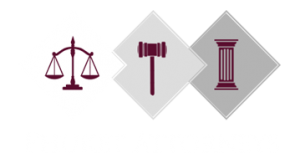Litigation in Thailand is conducted within a civil law framework, underpinned by statutes rather than precedent. The Thai court system is organized, accessible, and formal in structure, but it differs significantly from adversarial, discovery-heavy systems like those found in common law jurisdictions. This article provides an in-depth legal and procedural analysis of litigation in Thailand, addressing jurisdictional considerations, procedural mechanisms, evidentiary rules, and challenges unique to both domestic and foreign litigants.
I. Legal Basis and Court Structure
Litigation in Thailand is governed primarily by:
-
Civil Procedure Code (for civil and commercial matters)
-
Criminal Procedure Code (for criminal litigation)
-
Administrative Procedure Act (for public law disputes)
-
Constitution of Thailand and enabling acts for specialized courts
A. Court Hierarchy
Thailand's judiciary consists of three major tiers:
-
Courts of First Instance:
-
Provincial Courts
-
District Courts (for minor cases)
-
Specialized Courts (e.g., Intellectual Property, Labor, Bankruptcy, Tax)
-
-
Courts of Appeal:
-
Handle factual and legal appeals from the lower courts
-
-
Supreme Court (Dika Court):
-
Final appellate jurisdiction
-
Reviews only legal issues, not facts, unless manifest injustice is shown
-
Separate from this structure is the Administrative Court system, comprising:
-
Administrative Court of First Instance
-
Supreme Administrative Court
These courts handle disputes involving state agencies and public law.
II. Jurisdictional Rules
Jurisdiction is determined based on:
-
Subject matter (e.g., labor, bankruptcy)
-
Geographic location (defendant's domicile or situs of obligation)
-
Claim value (district vs. provincial court)
-
Party status (government vs. private actor)
Foreign litigants must confirm whether their dispute belongs in civil, administrative, or specialized courts, and whether personal or subject-matter jurisdiction exists.
III. Commencement of Litigation
Litigation begins with the filing of a plaint (complaint) with the competent court. The complaint must contain:
-
A concise statement of facts
-
Applicable legal grounds
-
Identification of parties
-
The remedy sought
Court fees are due at filing and are typically calculated as a percentage of the claimed amount (e.g., 2% up to a cap for civil claims).
Once filed, the court issues a summons to the defendant. Failure to respond may lead to default judgment.
IV. Defendant’s Response and Preliminary Proceedings
The defendant must file a written answer within the prescribed period (15 to 30 days). The answer may:
-
Admit or deny allegations
-
Raise counterclaims
-
Invoke legal defenses
Preliminary hearings are held to settle procedural matters, identify contested issues, and schedule trial dates.
Judges actively manage the litigation and may seek clarification, reject inadmissible claims, or propose mediation.
V. Procedural Principles
Thai litigation adheres to the following procedural principles:
-
Written submissions over oral advocacy: Emphasis is placed on formal documents.
-
No discovery: Parties present only their own evidence, though the court can compel production.
-
Judicial inquiry model: Judges play an active role in questioning witnesses and reviewing evidence.
-
No jury trials: Judges are both fact-finders and legal arbiters.
-
Use of Thai language: All pleadings and evidence must be in Thai; foreign documents must be translated and certified.
VI. Evidence and Witnesses
Evidence in Thai litigation includes:
-
Documentary evidence (contracts, invoices, correspondence)
-
Witness testimony (examined and cross-examined under court supervision)
-
Expert opinions (engineers, accountants, translators)
-
Real evidence (photos, maps, site inspections)
All evidence must be disclosed in advance. The court controls admissibility and weight. There is no general exclusionary rule, but unreliable or irrelevant evidence may be disregarded.
VII. Trial and Judgment
At trial:
-
Parties present evidence and call witnesses.
-
Judges may ask direct questions.
-
Interpreters are required if parties or witnesses do not speak Thai.
-
The burden of proof lies with the plaintiff, except where reversed by statute.
Judgment is issued in writing and must state the legal reasoning. In civil cases, remedies may include:
-
Damages
-
Specific performance
-
Injunctions
-
Declaratory relief
Interest on monetary judgments is typically granted by statute (e.g., 5–7.5% annually).
VIII. Appeals and Judicial Review
Appeals can be filed on:
-
Legal errors
-
Misapplication of evidence
-
Violation of procedure
Appellate courts re-examine the record and may affirm, reverse, or remand. The Supreme Court reviews only legal questions of public importance or those certified by lower courts.
In administrative cases, the Supreme Administrative Court hears final appeals involving government discretion, revocation of administrative orders, and ultra vires actions.
IX. Enforcement of Judgments
A civil judgment must be enforced via separate proceedings:
-
File a motion for execution with the court.
-
Identify and locate assets of the debtor.
-
Use court officers to seize and liquidate property or garnish wages/bank accounts.
Thailand has no centralized asset registry, complicating enforcement.
Criminal fines and penalties are enforced by public prosecutors.
Foreign judgments are not automatically enforceable and must be re-litigated as new cases, using the foreign judgment as persuasive evidence.
X. Interim Measures and Injunctions
Courts may grant interim relief, including:
-
Provisional seizure of assets
-
Freezing orders
-
Temporary restraining orders
-
Preliminary injunctions
To obtain such relief, the applicant must show:
-
Urgency
-
Irreparable harm
-
Prima facie case
Security or a bond may be required, especially if damages are possible from a wrongfully issued order.
XI. Foreign Litigants and International Dimensions
Foreigners may sue or be sued in Thai courts. Key considerations include:
-
Power of attorney (PoA): Required if acting through legal representatives.
-
Legal standing: Foreign corporate plaintiffs must demonstrate valid registration.
-
Translation and notarization: Foreign documents must be translated, notarized, and legalized via consular channels.
-
Legal representation: Only Thai-licensed lawyers may appear in court.
In cross-border matters, Thai courts may assert or decline jurisdiction based on treaties, comity, and choice-of-law clauses. Arbitration agreements are also respected under the Arbitration Act B.E. 2545 (2002).
XII. Legal Culture and Practical Challenges
-
Judges are career civil servants, not former practicing lawyers.
-
Mediation is encouraged but non-compulsory in most courts.
-
Trial scheduling is efficient, but delays may occur in complex or high-value matters.
-
Legal costs are moderate, but attorneys’ fees are rarely awarded unless specified by law or contract.
Foreign parties often face challenges in navigating language barriers, cultural expectations, and judicial discretion.
Conclusion
Litigation in Thailand is governed by codified statutes, with judicial procedure emphasizing formality, written submissions, and judicial control over evidence. While accessible in principle, it poses practical challenges for unprepared litigants—particularly those unfamiliar with the civil law approach or the procedural formalities of Thai courts.
Foreign parties engaged in disputes in Thailand should seek early guidance from locally licensed attorneys, maintain proper documentation, and prepare for a litigation environment that differs markedly from adversarial systems common elsewhere. Understanding the procedural timeline, evidentiary rules, and enforcement challenges is critical to success in Thai courts.


Warning: Undefined array key "preview" in /home/phuketla/public_html/attorneys-phuket.com/wp-content/plugins/oxygen/component-framework/components/classes/comments-list.class.php on line 102